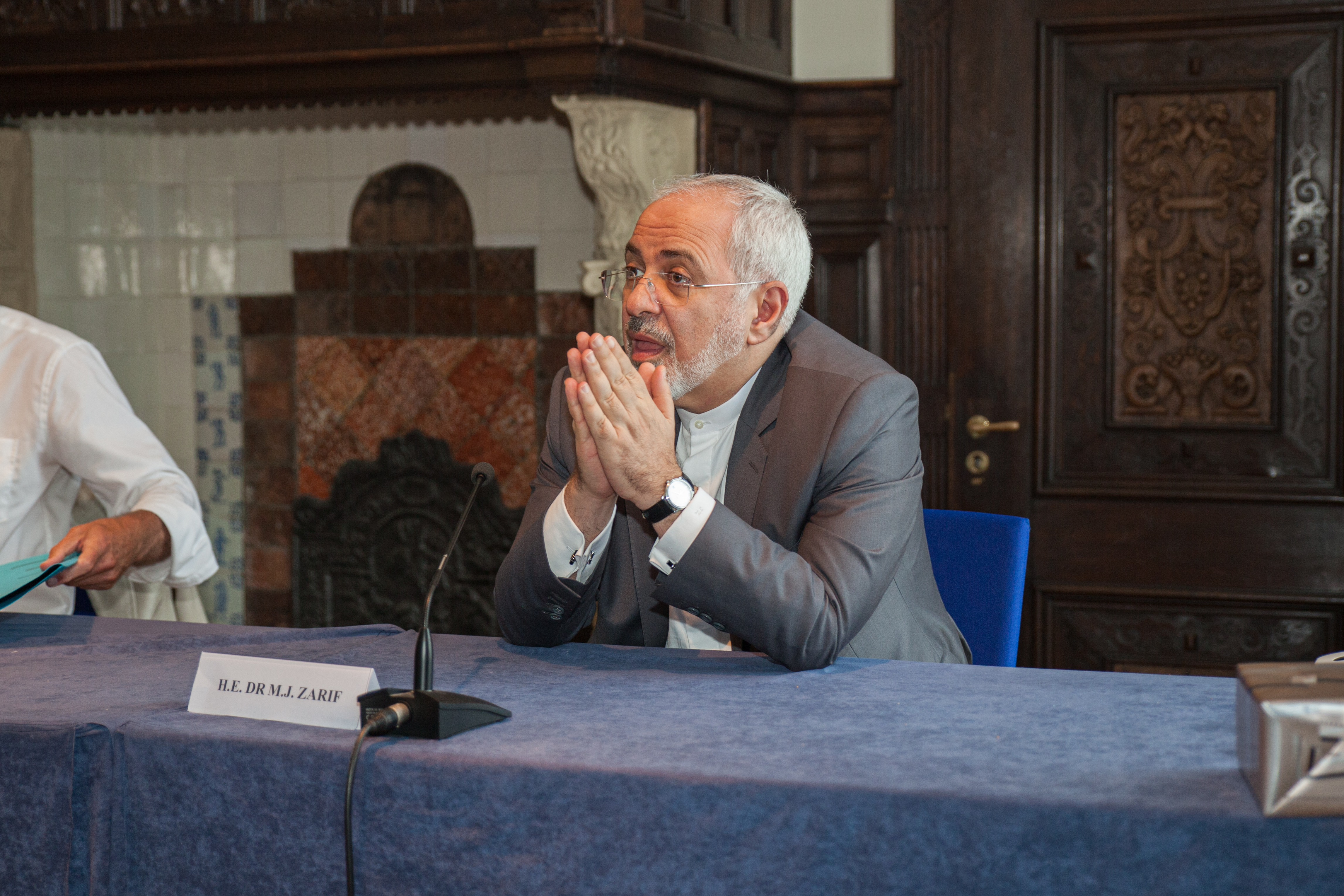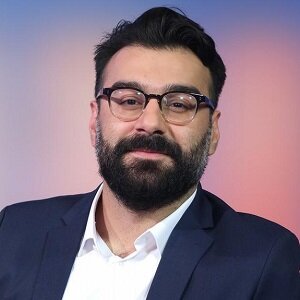MENAPOL Blog
The Window is Closing Quickly for Iran's Foreign Minister

Joe Biden’s victory in last November’s U.S. presidential elections signified, above all else, the end of the Trump era. This in itself is certainly sufficient for other countries to view the White House differently. For the Islamic Republic of Iran, the ensuing new era has been perceived as an opportunity to get rid of Trump’s “maximum pressure” campaign and its crippling sanctions. Biden’s ambition to institute a change in U.S. foreign policy has encompassed the likely return of Washington to the Joint Comprehensive Plan of Action (JCPOA), also known as the Iran nuclear deal. Over the last weeks, the question of how this may look like and when it will occur has been subject to an important debate in Iran. Featuring a variety of voices and even contradictory standpoints, the different positions taken by Iranian officials cannot be necessarily be detached from their respective domestic political aims and ambitions.
In early January, Mohammad-Bagher Ghalibaf, Iran’s Parliament Speaker, stated: “The return of the U.S. to the JCPOA is not important, the practical and effective lifting of sanctions is what is significant for us.” On his part, more recently, Mohsen Rezaee, a senior Iranian conservative who currently serves as the Secretary of the Expediency Discernment Council, said: “They [the U.S.] can announce and reassure us that all sanctions imposed after the JCPOA would be lifted in less than one year and tell us to go and negotiate this process.” This one-year timetable prompted Iran’s Foreign Minister Javad Zarif to take to Twitter to react by stating that “Iranian polity is vibrant & officials express diverse opinions. But those opinions should NOT be confused with state policy. As Iran’s FM & chief nuclear negotiator, I will shortly present our constructive concrete plan of action—through proper diplomatic channels.” Zarif’s answer is meant to avert any confusion in the international community about the polyvocality coming out of Tehran, while making sure he is seen as the chief decision-maker in “all things JCPOA.” Interestingly, in dramatic contrast, when Zarif was asked a month ago what percentage of Iran’s foreign policy has been under his authority during the last eight years, his answer was “zero.” Now, this contradiction begs the question of why he now wants to be recognized as a central actor in the revival of the JCPOA?
From National Hero to Nightmare
Before the start of those nuclear negotiations in 2013 (in the public realm), most Iranians did not know about Zarif who had served as Iranian Ambassador to the UN between 2002 and 2007. The JCPOA’s July 2015 conclusion catapulted him onto national and international prominence, and he was hailed as a national hero in Iran. Then, Trump’s May 2018 unilateral withdrawal from the deal constituted nothing less than a nightmare for him, with his popularity declining severely, in line with that of the so-called moderate Rouhani administration whose political capital was likewise heavily invested in the JCPOA’s fate. Subsequently, Zarif’s stature and role in the Islamic Republic’s foreign policy waned, as Iran’s key power centers sensed the failure of Zarif in his most important mission, i.e. the nuclear deal. For instance, in February 2019, when Bashar al-Assad visited Tehran for the first time after the 2011 uprising in his country, Iran’s foreign minister was absent from the meeting between the Syria’s President and Iran’s Supreme Leader Ali Khamenei and President Hassan Rouhani. In fact, Foreign Minister Zarif was not even informed about Assad's trip. This episode pushed Zarif to send in his resignation, yet he finally retracted his decision.
With Trump having left the scene and Obama’s former Vice-President Biden entering the White House, Iran’s Foreign Minister senses the possibility that a revival of the JCPOA may spell a much-needed reparation of lost fortune. This, in fact, can be interlocked with the rebirth of his stature in Iranian politics. In recent weeks, voices calling upon Zarif to run in the presidential election in June have grown louder, with many moderates arguing that a “Zarif–Biden era” could turn out to be beneficial for all sides concerned – Zarif himself, the moderate élite faction, and the Iranian at large. both sides. In this context of an interlocked fate between, one the one hand, his own political legacy and potential future and, on the other, the future of Iran–U.S. relations, some of Zarif’s comments have been contradictory and at time even in contrast to those of other Iranian officials – making the impression that he is putting the cart before the horse.
Zarif’s “Old Friend” Entering the White House
Before the U.S. elections, when most polls predicted Joe Biden would become be the next president, in late September only a few days after the latter wrote a piece for CNN where he expressed his willingness to revive the JCPOA, Zarif put a tough condition on the future U.S. administration, saying that if Washington wants to rejoin the JCPOA, it will be required to compensate for the financial consequences of Trump’s harmful sanctions – which Iranian officials have estimated to amount to at least $200 billion. When in November Biden won the presidential election, in Iran optimism toward the incoming new administration grew. Then, Iranian media close to the moderates broadcasted an interview from Zarif in 2015 in which Iran’s foreign minister implied he and Biden entertained an old friendship, “frequently meeting each other” when Zarif had served as Iran’s Ambassador to the UN. At the same time, Zarif claimed that Iran’s economic situation will soon be significantly improved as “Biden is able to lift all sanctions with three executive orders.”
Nevertheless, since January 20 when Biden took office, the new U.S. president has been very cautious to make any decision regarding Iran, casting doubt over Zarif’s almost euphoric optimism that Washington rejoining the JCPOA would be around the corner once his “old friend” enters the White House. Instead, the Biden administration has frequently emphasized that it was up to Iran to take the first step and fully re-comply with its JCPOA obligations before the U.S. rejoins the deal.
Zarif’s Peculiar Standpoints
In response to this U.S. demand, Zarif has in a number of interviews stressed that the U.S. had no other option than to first rejoin the JCPOA. In mid-February, he said: “President Biden has a choice: Break with Trump’s failed policies, or build on his failures. Building on his failures will only bring further failure.” Although this stance echoes that of other Iranian decision-makers, there have been at least two significant differences in Zarif’s standpoints that highlight his desire to see the U.S. rejoin the deal as fast as possible. In fact, while other Iranian officials, including Supreme Leader Ali Khamenei, emphasized that the United States has to take the first step by lifting all sanctions and Iran must assess these U.S. actions first, Zarif appears to be seeking a shortcut to revive the deal faster. In this vein, he has been the only Iranian politician who suggested a mechanism in which Tehran and Washington can return to compliance with their JCPOA obligations “simultaneously.” Iran’s foreign minister proposed that Josep Borrell, High Representative of the European Union for Foreign Affairs and Security Policy, in his capacity as Coordinator of the Joint Commission of the JCPOA, manage and coordinate the reciprocal steps to be taken by Iran and the U.S.
However, in early March, Zarif admitted Washington’s reluctance, saying “the Biden administration has not yet decided what it wants to do, their words are vague and meaningless, although they still have time to correct their comments.” In an early February interview with Hamshahri daily, Zarif warned that the U.S. has little time to rejoin the deal as “the window is closing quickly” because Iran’s compliance with the JCPOA will significantly decline in upcoming weeks. He also stressed the issue of reciprocity and simultaneity, saying that in the case of the Biden administration recommitting the U.S. to the deal via the signing of executive orders, Iran’s president could order the Atomic Energy Organization of Iran to prepare Iran’s return to full compliance with its JCPOA obligations. However, the spokesman of Zarif’s own ministry, Saeed Khatibzadeh, highlighted that before Iran takes any steps on its part, Tehran would first need to assess the effectiveness of any U.S. moves toward lifting sanctions, insisting that “we must have access to Iran’s asset.” In contrast to Zarif’s suggestion, he said that the “rejoining of the U.S. is not automatic and cannot be done with [only] a signature [by the U.S. president in form of an executive order].” In fact, the complex web of Iran sanctions that Washington has weaved cannot simply be dismantled by presidential executive orders as many of them are linked to Congressional legislation.
Motivations behind Zarif’s Overt Optimism
Zarif’s overt optimism regarding the pace as well as modalities of a U.S. return to the JCPOA, including his warnings to the White House that it should rejoin the deal as fast as possible, could be explained in two ways. First, he wants to rebuild his stature in Iran where his 2015 image of a diplomat with unrivaled professionalism and intelligence has slowly faltered into one connected to failure as almost three years later the Trump administration withdrew the U.S. from the JCPOA.
Besides resurrecting the JCPOA, his signature achievement that has been intimately linked to the rise and fall of his standing as a diplomat, there might also be a domestic political context playing a role in Zarif’s public diplomacy. With Iran’s June presidential elections looming on the horizon, Zarif’s proponents from the so-called moderate camp of the establishment have little chance to win. In fact, over the last year, almost on a weekly basis, news agencies close to this camp have released reports and interviews that promote the idea of Zarif running for the presidency. While the Foreign Minister had routinely dismissed this proposition, ironically coinciding with Biden taking over the White House, Zarif seems to have shelved his erstwhile stern opposition. In an interview with Ettelaat daily just a few days after the Biden inauguration, when asked whether he would run for president, Zarif ominously replied: “I do not seek idleness [âfiat-talabi] that would prevent me to assume responsibility; as I did not like to accept the Foreign Ministry, but I tried not to be idle [âfiat-talab].”
In conclusion, the tireless attempts of Iran’s foreign minister to see the JCPOA revived as fast as possible seem to go beyond what other Iranian officials pursue, which helps explain his at times different and even contradictory comments on the speed and modalities of the Biden administration returning to the nuclear deal.
About the Authors



